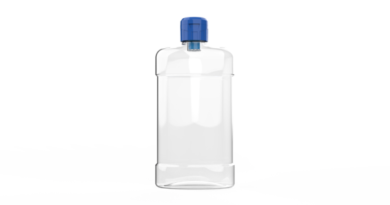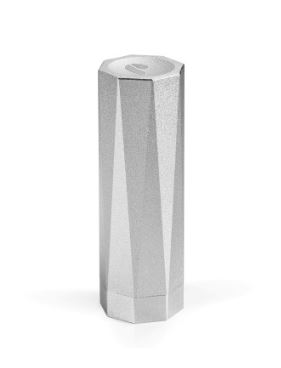Magnetizable Inks for Enhanced Recycling
Conducting an utterly circular economy with maximum recycling is necessary for the future of sustainable manufacturing. Unfortunately, packaging usually hinders recycling efforts because it includes features that cannot be recycled and are challenging to separate from recyclable materials. Magnomer, an innovative packaging materials start-up, uses magnetizable ink to clear those impurities and permit complete recycling.
How Does Magnetized Ink Improve Recycling Efficiency?
The industrial recycling method implicates grinding packaging into small flakes that can be softened down for additional processing. Before Magnomer’s intervention, labels ground up with these chips would generate impurities, creating recycling more complex and inefficient.
Magnetized ink represents labels that can be removed from packaging with standard magnets, going only pure packaging flakes. The ink can be used for different resins and package classes and is easily combined with industry-standard printing processes.
Magnets are already used in recycling operations to remove ferrous metals from waste streams, which means that Magnomer’s solution is also already applied to the recycling industry and manufacturing.
The company’s first pilots were with shrink sleeve labels on PET bottles, but Magnomer claims its product can be seamlessly integrated into various current packaging applications. Recycling HDPE bottles, sorting multilayer films, and recycling aluminum cans can all be improved with magnetized ink labeling, according to Magnomer.

Magnomer’s proprietary magnetic inks can be applied to various plastics used in disposable packagings, such as drink bottles, labels, & caps. It can dramatically improve the recyclability of those items in the waste stream since they can be sorted at a recycling facility with inexpensive magnetic retrieval. What we like about the company:
- Limited cost and limited need for change by deployers. Many intriguing ideas to improve CPG recyclability are unattractive to global companies due to dramatically higher unit costs or significant obstacles in changing to new packaging. The Magnomer innovation is more or less just another ink pass on current packaging. Brands appear willing to pay a premium ink price for a recycle-friendly feature that doesn’t force them to re-tool their entire packaging solution.
- Support of a global CPG player. The simplicity and adaptability of the solution have attracted the interest of a global beverage company that has already completed one paid pilot project with Magnomer and is launching a second, larger pilot, which should translate to scalable revenue with good results.
- A lot was done with a little. Besides the impressive commercial traction at such an early stage, we liked the intensive effort the team had made to date to fund itself from modest winnings: $50K from Mass Challenge, $10K here, and $15K there. Every dollar was carefully applied.
- Innovative IP. Some of the strongest defensive moats in startups are patents. Magnomer started early in assuring patent protection for its innovations with Wilson Sonsini, one of the country’s premier IP legal teams — who liked it so much that they invested in the round, too.
- Passionate & compatible founder team. Ravish brought on two co-founders, including an essential link to testing and manufacturing in India, rapid and inexpensive. Our view of how this partnership is working so far has been impressive.
The Magnomer investment opportunity came to TBD Angels through our network, and the eleven members participating, all with valuable operating expertise, are eager to help advise Magnomer from here. The investment round was 50% oversubscribed, an excellent sign, we think, of what’s to come. Congratulations to Ravish, Vishal and Kumaril; welcome to the TBD Angels group!






